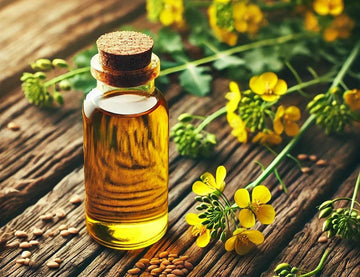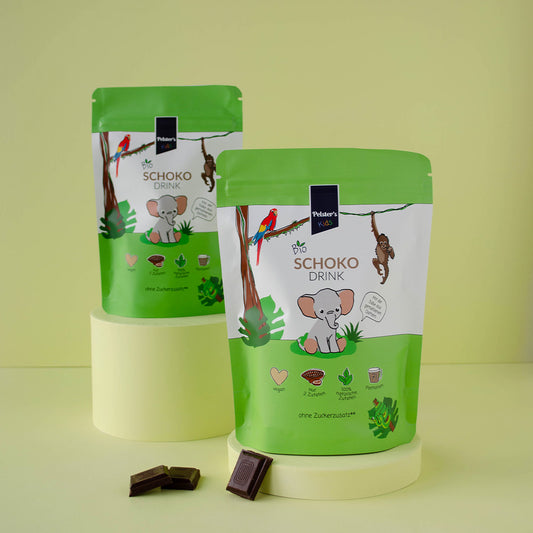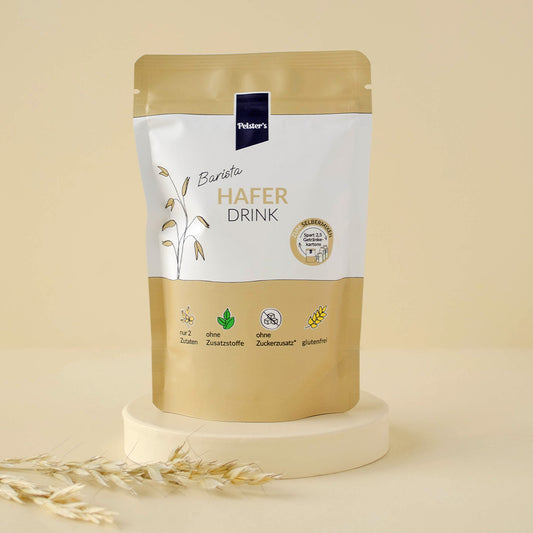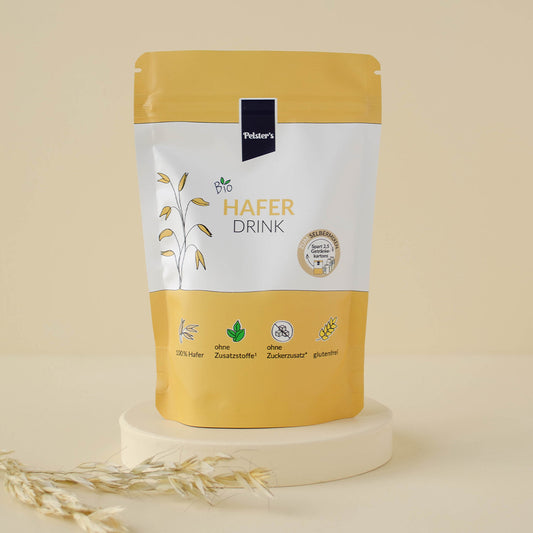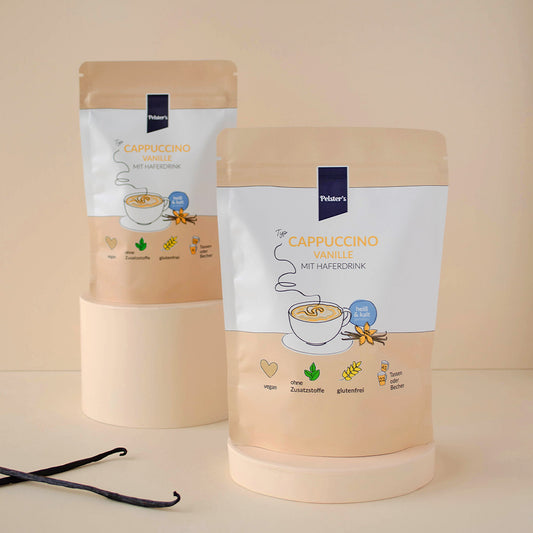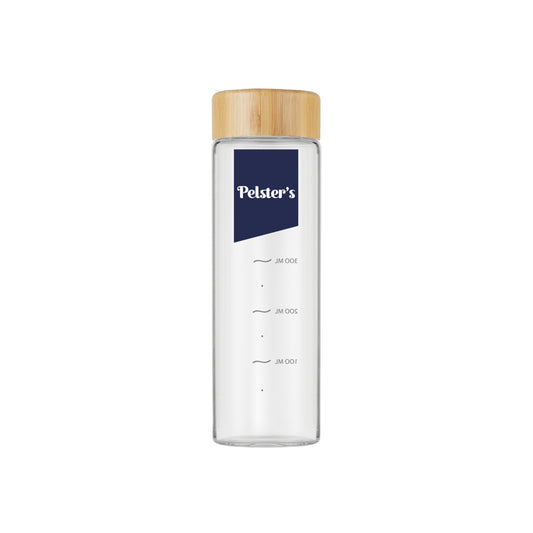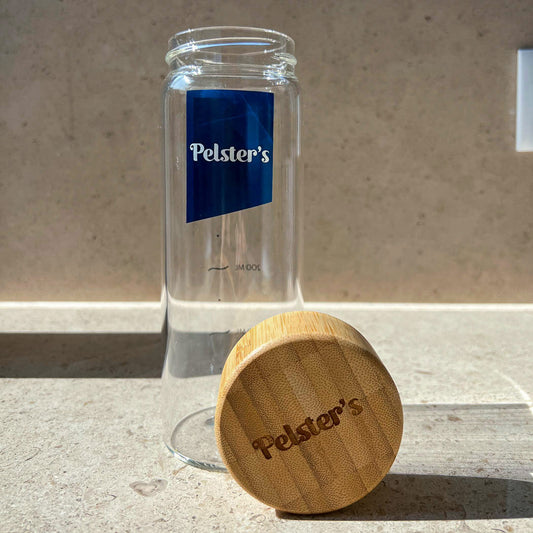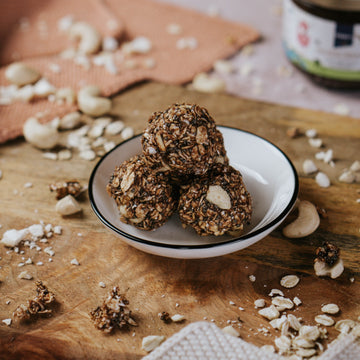Rapeseed oil has come under fire recently, especially due to statements made by some influencers. But what is really behind it? In this article, we take a close look at the myths, health benefits and possible risks of rapeseed oil.
Origin of rapeseed oil: short transport routes and sustainability
The rapeseed oil that we buy in Germany usually comes from regional cultivation or from other European countries. This ensures short transport routes and a positive climate balance. Rapeseed oil is one of the most popular cooking oils in Germany and has a market share of 41% according to the Society for Consumer Research (GfK). (1,2)
Production of rapeseed oil: cold-pressed or refined?
There are two common methods for producing rapeseed oil:
- 1. Refined rapeseed oil : Heating and standardization produce a neutral, light oil of consistent quality.
- 2. Cold-pressed rapeseed oil : This gentle method leaves the oil untreated, giving it more aroma and a honey to amber color. Warning: If the oil tastes musty, it should be thrown away. (1)
Saturated fatty acids, such as those found in butter, can be bad for the heart. Therefore, the German Nutrition Society (DGE) recommends eating only a small amount of them, namely a maximum of 10% of the daily energy intake. (1)
Rapeseed oil, on the other hand, contains many polyunsaturated fatty acids, such as oleic acid , which can lower cholesterol levels. Rapeseed oil also provides valuable omega-6 and omega-3 fatty acids. Just two tablespoons (20g) of rapeseed oil a day cover about two thirds of the recommended daily requirement of omega-6. Omega-3 fatty acids, such as alpha-linolenic acid , are particularly important for the body because they inhibit inflammation and promote blood circulation. Two tablespoons of rapeseed oil also sufficiently cover this requirement. (1)
This fatty acid is also crucial for the neurological development of children. In addition, a deficiency in alpha-linolenic acid can lead to vision problems, muscle weakness and tremors. (2)
Rapeseed oil: fatty acids and vitamin E - another plus for health
Rapeseed oil has a unique composition that makes it one of the most beneficial oils. It contains few saturated fatty acids, has a high proportion of oleic acid and an optimal ratio of omega-3 to omega-6 fatty acids . According to the German Nutrition Society (DGE), this ratio should not be higher than 1:5. However, rapeseed oil achieves an excellent ratio of 1:2.4. This makes it ideal for a balanced diet. (1) It also contains a lot of vitamin E , which also offers health benefits. (2)
Öko-Test and Stiftung Warentest: High quality even with cheap rapeseed oil
According to Stiftung Warentest, even cheap rapeseed oils can be of very good quality. Öko-Test also confirms the excellent fatty acid composition of rapeseed oil, which makes it an ideal choice for everyday nutrition. (1)
Myths and rumors about rapeseed oil: Facts about alpha-linolenic acid, erucic acid and glycid esters
Does alpha-linolenic acid increase the risk of cancer?
There are rumors that the alpha-linolenic acid in rapeseed oil could increase the risk of cancer. However, scientific studies such as those by the German Nutrition Society (DGE) and the World Cancer Report have not been able to confirm this. (2) In addition, the European Food Safety Authority (EFSA) and the Federal Institute for Risk Assessment (BfR) have not set any upper limits for the intake of alpha-linolenic acid. (2)
Can erucic acid damage the heart?
The erucic acid in rapeseed oil has also been viewed critically, as it can potentially damage the heart through fatty deposits in large quantities. However, the erucic acid content in rapeseed oil has been greatly reduced through breeding, so that commercially available rapeseed oil is safe - even for babies and small children. (3)
In addition, in 2021 the BfR gave the all-clear for the erucic acid content in commercially available rapeseed oil.(2)
In order to continue to keep the risk low, maximum limits for erucic acid have been set by the European Food Safety Authority (EFSA) and the EU Commission. According to the Federal Plant Variety Office, no rapeseed oil varieties containing erucic acid are currently approved in Germany (3).
Are there risks from glycidyl esters?
Rapeseed oil is sometimes criticized for possible harmful substances, such as glycidyl esters . These can be created during refining and can potentially damage the genetic material. But Stiftung Warentest gave the all-clear in 2018, because all oils tested are safe and below the specified limit values. (1)
Conclusion: Why rapeseed oil should not be missing in your kitchen
Rapeseed oil impresses with its unique composition of unsaturated fatty acids, especially the optimal ratio of omega-3 to omega-6 fatty acids (1:2.4). It is not only good for the heart, but also for cholesterol levels and general health. Just two tablespoons a day are enough to benefit from the many advantages of this versatile oil.
Sources:
(1) Stiftung Warentest. (2018). Rapeseed oil in the test. Online at: https://www.test.de/Rapsoel-im-Test-1816151-0/ (last accessed: September 10, 2024).
(2) German Nutrition Society (2022). Rapeseed oil in discussion – Interview. Online at: https://www.dge.de/blog/2022/rapsoel-in-der-diskussion-interview/ (last accessed: September 10, 2024).
(3) BfR. (2021). Infant formula_ Health risks from erucic acid are not to be expected. Online at: https://www.bfr.bund.de/cm/343/saeuglingsnahrung-gesundheitliche-risiken-durch-erucasaeure-nicht-zu-erwarten.pdf (last accessed: September 17, 2024).

